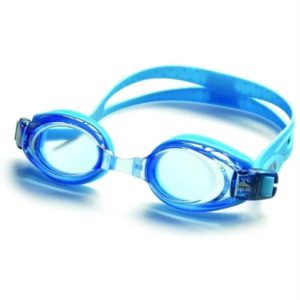|
1 ) PRACTICE DESCRIBING SPORTS 2) IELTS PART 1 QUESTIONS – TOPIC SPORTS 3) IELTS PART 2 QUESTIONS – TOPIC SPORTS 4) IELTS PART 3 QUESTIONS – TOPIC SPORTS |
Audio 4 - Describe a Sport
Audio 5 - Describe a Sport
Audio 6 - Describe a Sport
| Letter | Number (1-6) |
| Sport A | |
| Sport B | |
| Sport C | |
| Sport D | |
| Sport E | |
| Sport F |
Transcripts
IELTS Speaking Describing Sports 1 (Sport A) - Golf
This is an individual sport that is played outdoors. Participants use a club to hit a small white ball towards a hole. There are 18 holes on the course and when you have played all 18 you have completed a ‘round’. People usually wear plain white trousers to play this game, but many participants wear colourful shirts. Participants take their turn to hit their ball and they have an assistant called a caddie who helps them locate their ball. The caddie also carries their clubs. The prize money for winning an important tournament like the Masters is very generous. This sport is popular in my country particularly among businessmen and retired people.
IELTS Speaking Describing Sports 2 (sport E) - Basketball
This team game is played indoors on a court. There are 5 players on each team. The aim of the game is to throw a ball into a hoop. Players are allowed to bounce the ball with their hands and throw to their team mates. However, kicking the ball is forbidden. People wear shorts and shirts in the colours of their team. Meanwhile the opposition team wear a different colour. This helps players to identify their team mates. The best players receive huge amounts of prize money, especially if they reach the finals.
IELTS Speaking Describing Sports 3 (Sport B) - Table Tennis
This sport is usually played between two players who stand on opposite sides of a table. They hit a small white ball using a bat over a net in the middle of the table. The aim is to make the ball bounce on the opposite side of the table.
IELTS Speaking Describing Sports 4 (Sport F) - Aikido
Although this is an individual sport, students spend a lot of time practicing with each other in an especially designed gym with mats. It originates from Japan and there is a lot of emphasis on discipline and respect. As well as a sport it is a martial art that trains students in self-defence. There are a lot of throws so the students have to be careful not to injure each other. There aren’t any tournaments, but students do gradings where they can get a new belt. Black belt is the highest grade and white is the lowest.
IELTS Speaking Describing Sports 5 (sport C) – Rugby
This outdoor sport is played between two teams of 15 players. The aim of the game is to get to the other side of the pitch with a ball. You are not allowed to pass the ball forwards, only sideways or behind. There are lots of complicated rules and the ball is shaped a bit like an egg. It can be quite a dangerous sport and you have to be quite strong to play it. It is popular in the United Kingdom and is also played in Australia, South African and New Zealand, to name but a few.
Describing Sports 6 (Sport D) – Badminton
This is an indoor sport that is played on a court. In the middle of the court there is a high net. Players have to hit a shuttlecock over the net and down onto the floor of their opponents side of the court. There are often quite long rallies where the ball goes from one side to the other many times before a point is scored. Although it can be played with two people on the same side, it is usually played as an individual sport. It is an amateur sport and therefore the prize money is not great compared to sports such as football. However, it is a lot of fun to play and the best players can get to represent their country in international sporting competitions such as the Olympics.
SECTION 2) IELTS Speaking Part 1 Questions-
Topic Sport
IELTS Part 1 questions about sport will generally be about sports you play now, sports you played when you were younger, or sports you would like to try. There may also be a question or two about health and fitness as it is a related topic. Another favourite is general questions about children playing sport in school.
Which sports are popular in your country?
Well there are a few that spring to mind including cricket, rugby and basketball, but football is by far the most popular. Most children play football in their spare time and watch it on television. Also many people go to football matches on Saturdays to watch their favourite team.
Did you play sport at school when you were younger?
Yes, I did. We had PE lessons twice a week and this included football training and lessons in basketball, rugby and cricket in the summer. We also used to play football for fun at lunchtimes on the school field. We would put jumpers down for goals and sometimes we had up to 20 players per team.
How often do you play sport?
I am a member of a badminton club and we meet every Wednesday to practice. We also play competitions about once a month. If I had more time I would like to go swimming because that is a great way to exercise your whole body, without risk of injury.
Do school children in your country play much sport?
Unfortunately young people in my country are too distracted by gadgets and social media to exercise regularly. This is a shame because when I was younger children were very fit and active.
Section 3) IELTS Speaking Part 2 Question
Topic Sport
|
Describe a sport you enjoy You should say: Where people play this sport What equipment people use to play this sport How popular this sport is in your country You should also say whether you like to watch or play this sport. |
|
|
Swimming Trunks |
|
|
|
Part 2 Speaking - Describe a Sport
I'm going to talk about swimming. Most leisure centres in my country have a swimming pool attached and there are also some outdoor swimming pools in bigger cities. All you need to practice this sport is some trunks if you are male or a swimming costume if you are female. However most people choose to also use goggles, which keep the water from getting in your eyes. When you get out of the swimming pool you will also need a towel to dry yourself off.
I first took up this sport in primary school as swimming lessons were compulsory. It quickly became clear that I was a natural and after only a couple of months I was able to complete a whole length. My parents were impressed by my quick progress and they suggested I join a swimming club. It was when I joined my local club that my swimming really took off. I became a very fast swimmer and won many local competitions. Although I don't swim competitively any more I still do it for fun and I hope to teach my children to swim one day.
In my country swimming is a popular sport among people of all ages. Unfortunately this means swimming pools can get quite crowded in the summer months, particularly at the weekends. However, if you choose to go early in the morning you can usually find some quiet lanes to enjoy your swim.
Section 4) IELTS Speaking Part 3 Questions
Describe a sport
The following part 3 speaking questions follow on from the part 2 question 'Describe a Sport you enjoy.'
Should we devote more time to sport as part of the school curriculum?
I would say that because obesity levels have risen in recent years and many school children have illnesses related to poor diet and lack of exercise, it is vital that we introduce more sport into children's daily lives. We can do this by giving sport a bigger role in the school curriculum and also by setting up after school sports clubs for children to try out new sports. Diseases such as obesity and diabetes cost the health service millions of pounds every year so the cost of coaching children to learn sport will be an investment in our future.
Can attempts to improve fitness and health be dangerous?
Generally speaking it is a good thing for people to make healthy changes to their lifestyle. However there are a couple of exceptions to this rule. Firstly if someone is very unhealthy and overweight they should avoid introducing vigorous exercise and making drastic changes to their diet. A sudden change to peoples habits can lead to health issues such as heart attacks. Instead people who are unfit should make subtle changes to their lifestyle and take things slowly.
How important is it to have the correct clothing and equipment when you take part in a sport?
Wearing a the correct uniform or kit is really important when playing a sport. Firstly sports clothing is designed to help protect you from injury. If you don't wear suitable clothing you are more likely to hurt yourself or injure someone you are playing with. Also the correct clothing will help you to feel more comfortable and help you fit in with your team mates.
What are the biggest threats to our health these days?
The most obvious threat to our health is inactivity; most people these days don't get enough exercise due to busy work and study schedules. This coupled with a poor diet can lead to serious health problems such as obesity and diabetes. We also live in a world where air pollution is a very real concern for city dwellers.
Do you think it will be possible to cure diseases such as cancer in the future?
Although I don't expect we will be able to eradicate cancer completely I do think we will make significant inroads in the fight against cancer in the next few decades. This will bring hope to sufferers from around the globe.
Should part of the health budget be spent on making alternative therapy available to patients?
Generally speaking I think that conventional medicine is the best treatment for serious illness. However, I do think the health service should provide some complementary therapies to patients, particularly those who are suffering from stress, anxiety or depression. Therefore a small percentage of the annual healthcare budget should be spent on providing classes and advertising the benefits of alternative medicine. Doctors should also consider encouraging their patients to take up a alternative therapy such as tai chi, yoga or meditation.
Should we allocate more money to prevention or treatment of diseases?
I would say that prevention of disease is the responsibility of schools, government and the individual. Although money should be given to health care professionals for the prevention of diseases, medical staff and hospitals should primarily work towards treating rather than preventing sickness.
 Swimming Goggles
Swimming Goggles

